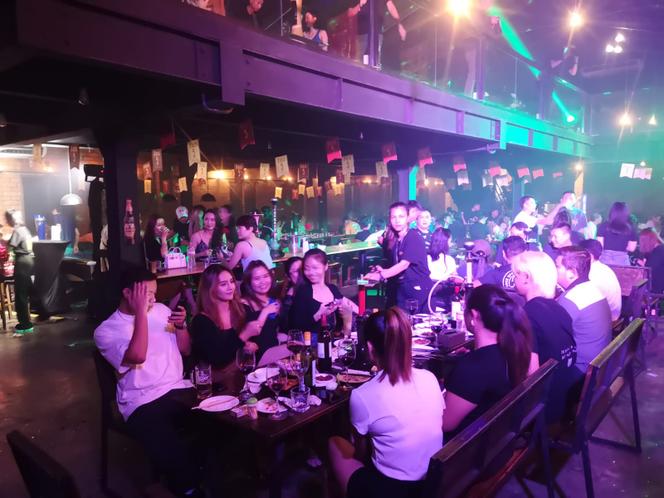


In Yangon, people are partying, dancing and shopping. Strange as it may seem, the economic capital of Myanmar in the throes of a civil war has returned to near-normalcy since the days of the major antijunta protests, bloodily suppressed by the army, in the aftermath of the February 1, 2021 coup d'état.
Although it's not uncommon for wartime to allow for spaces of normalcy, even festivity, to survive, Yangon's dynamism is striking, as recounted by a Western expatriate – whose identity is withheld for security reasons. "I'm amazed by the number of bars, restaurants, nightclubs and karaoke bars that are open and sold out," said the man who has been living in Myanmar for years.
On the rooftops of cafés in several districts, where the nightlife was concentrated long before the generals' latest putsch, rich kids are partying. And, it seems, it doesn't matter to them if they're toasting in the noxious climate of a rudderless regime, repeatedly failing to overcome increasingly determined guerrilla tactics. "The overall economic situation is certainly disastrous," said our contact over the phone, "but that doesn't prevent the middle class from still having the means to spend. On weekends, the shopping malls are packed."
By the early 2010s, when the previous military junta dissolved itself before former dissident Aung San Suu Kyi's party won a landslide victory in the first free elections of 2015, Myanmar had emerged from its interminable economic-diplomatic isolation. A new class of parvenus has flourished. Today, some of them "are still doing well," said the expatriate. "Intermediaries and traders of all stripes are taking advantage of the civil war to do business, often on the fringes of legality, but not only."
In the dysfunctional country, everything is paid for, negotiated and bartered, from the issuing of a passport to the clearance of cargo backlogs in the port of Yangon. But while business is booming, poverty has worsened. Crime is on the rise. "I was talking to a police officer the other day, and he admitted that petty crime was on the rise: pickpockets, knife-point robberies, burglaries and sometimes bank robberies, which were rare before the war," said the expatriate.

The regime is taking precautions. Soldiers have moved into schools, and the media are publishing reports of night-time patrols by members of the special forces with armored vehicles. Rumors are rife throughout the city, sometimes dampening the spirits of night owls in the "volatile" neighborhoods. Young people are said to be rounded up during the night. "People are wondering whether they've been sent to the front as coolies [porters] or demining workers," said the foreign resident. And targeted assassinations carried out by the urban resistance against neighborhood leaders working for the regime are continuing.
You have 30% of this article left to read. The rest is for subscribers only.
